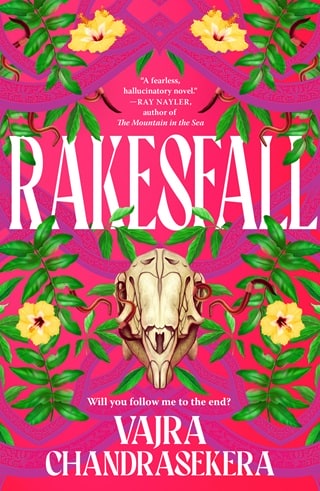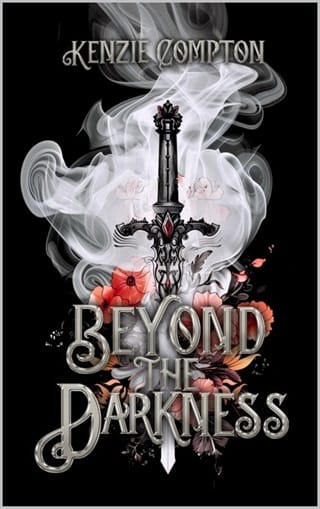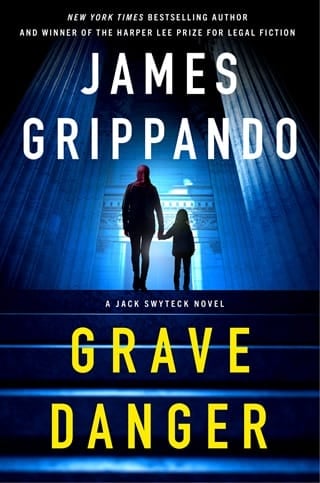Chapter 6 The Witches’ Hammer
A police motorcycle drives past. Its slow and flashing lights are a trail of golden eggs. I blink. Then the convoy. A jeep of armed soldiers, then a couple of heavy, expensive cars with tinted windows. A minister, I estimate, but not the president or prime minister, otherwise there would have been more motorcycles, more jeeps, a trailing ambulance to show that assassination attempts would be taken seriously. A mere minister is more expendable, and their convoy smaller. It recedes faster than it arrived.
The policeman nods at me to move along. Pedestrians along the street resume walking, and regular traffic fills Horton Place again, its near-silence broken by the throaty rattle of engines.
Horton Place is named after Robert Wilmot Horton, who like Torrington was another British warlord. Horton was at one time imperial Undersecretary of State to the Colonies. His protégé, Thomas Moody—who so admired Horton that he named a son after him—served on a British parliamentary commission on slavery in the West Indies in that age of slow, unwilling abolition. Moody argued in slavery's favour (in those years he himself "owned," a word dyed the colour of old blood, up to nine domestic slaves), convinced after Montesquieu that climate determined character: the bodies of the enslavable being so enervated by our hot countries of origin, the people so slothful and dispirited, that only the fear of chastisement could oblige the likes of us to any laborious duty, which made slavery reasonable and natural for us, but unnatural and wrong for cold Europeans, for whom it should indeed be abolished. Today, almost thirty years from the postcolonial republican constitution that finally dethroned the Elizabeths and Georges from the head of our table, the street that bears Horton's name hosts all the convoys of enervated ministers, dispirited prime ministers, and executive presidents heading from their well-appointed homes where former colonial manses once squatted on the city's west side to the new parliament building on the east side. This parliament was built by a Japanese construction company in the early 1980s, on an island of fifty thousand square metres that was once a chicken farm in the middle of a lake. Its location was chosen in imitation of what once stood thereabouts, the centuries-ago marsh fortress of the little kings of Kotte from which commandos of the great-ships of the Ming Emperor once staged an almost-successful heist of the Buddha's tooth relic.
That parliament building is slightly younger than me; it is still called new, so I must be, too. I don't feel new. When I was barely a year old, and the New Parliament Complex only partially constructed, the president buried underneath the doorway of its main entrance an intricately carved silver casket containing nine gems and items of magical significance. As magical acts go, this was superficially traditional for new constructions, but given his propensity toward pale magic—his other great magical work was his then recent rewriting of the constitution to give himself absolute power—it's easy to believe this silver-shielded bane has radiated only malefic influence in the decades since, during which nothing good has happened in that cursed chickenshit building. Parliament squats in it on their appointed days, fighting and farting. Those days are marked by frequent road closures, vehicular and foot traffic alike frozen in place and forbidden any sudden movements, while armed and armoured convoys bear their poisonous fruit to and fro on the long straight road that cuts the city in half and changes its names every few dozen yards and every few dozen years: Ananda Coomaraswamy Mawatha, still called Green Path from when Dutch slavers called it Groene Weg, the route that cinnamon took to the sea; D. S. Senanayake Mawatha, called Castle Street though there is no castle nearby except that long-gone Kotte fortress whose fragmented ramparts can still be found hiding in some backyards; Sri Jayawardenapura Mawatha, which has no white name because it is a new route replacing its older counterpart Dr. N. M. Perera Mawatha, still called Cotta Road, "cotta" a white mispronunciation of Kotte; and, of course, Horton Place, which for some reason was never renamed in the ecstasies of postcolonial reclamation. I walk slowly, expecting to be stopped again. I'm waiting for a different convoy.
There's going to be a ceasefire soon, they say. Perhaps that is what parliament debates today. The promise of a real end to the twenty-year war is how this prime minister came to power, creating an unstable binary of a president and prime minister from opposed parties. I voted for him myself, in the parliamentary election earlier this month where sixty people died. I voted for peace, even though peace seems like the kind of science fiction that posits a future utopia, sleek and bald and rational, without satisfactory explanation of how we get to there from here, this convoluted, bloody, tainted here, except by appealing to our better natures at critical moments, a long arc bending toward justice. It seems like science fiction, wrapped in a pulp cover.
My father died a few years ago believing the war would never end. I don't know how he would have reacted to the idea of a ceasefire. He died like his father before him, and his atta mutta natta panatta kitta kirikitta kirikamutta before that, of cirrhosis of the liver. They're all alcoholics where my father came from, suicides by bottle instead of bombs. Coconut toddy, arrack, or in my father's final years, an awful cheap brandy from the local wine store. When he was too far gone, he would fling shatter-hungry household objects—dishes, bowls, glasses, a smiling ceramic doll he'd brought home from Japan when he was young—and shout that he could see the devil inside me. My father it was that cursed me, long ago when he thought I was a boy in the wrong shoes. I have three curses on me, all his authorship. Because I once refused to eat a meal he made for me, I can never eat rice without finding stones in my mouth, no matter how well I wash the grains before cooking it, even if I only buy rice that comes in clean supermarket packets instead of from a gunny sack. Because I once said his drinking made his sweat stink, I am anosmic, unable to smell anything even if I hold it right under my nose. And worst of all, because I once slammed a door in his face, I cannot enclose myself. The world always leaks into my space, no matter how careful I am. This last curse I have tried to fight. My barricades tumble, chairs unsteady over cabinets; in the dark of the lock the tumblers slip and slide rather than turn; bolts and nails fray like loose threads under a heel. I always lock doors behind me, out of desperation grown habitual, but either the mechanism breaks or never takes or if all else fails my own cursed traitor hands unlock them while my thoughts are elsewhere occupied.
Residual bleedover from this curse extends to the privacy of my thoughts. I overspill; I am decontained. The things I think echo out into the world as if I'd said it with my mouth. Sometimes the mouth says it out loud, a traitor; it is a struggle not to shout my secrets for every policeman on the street. At my father's funeral pyre, I stood dry-eyed and grinding my teeth so as to not shout back at it with curses of my own. A year later, alone in my room in the middle of the night, I began to cry, uncontrolled sobs that felt like wet hiccups rising up from whatever diseased organ inside me held a remnant of feeling for the old man, once the news of his death finally sank deep enough to reach that desolate place.
My mother wept on cue at the funeral, of course. She sat mute and stone-faced at first, probably in relief. But then she stood, scrounged up the energy from somewhere, and threw herself on his body in the casket to wail and beat her fists against his breast. She had spent the last twenty years weeping to me about how she wanted to leave him and never doing it; now that he had left, she had a window of peace and quiet in this life before her fated troubles picked up again in the next. Putting on a play for ghosts and family at the funeral was a small price to pay.
My father long knew where they would both be reborn in their next life. He spoke of it often: how they went to an astrologer, long before I was born, who told him he and his beloved wife were fated to be reborn and to be together again, the next time not in Colombo or anywhere on the island but in Madurai, in Tamil Nadu up north and over the water. Because of this prophecy, my father fretted any delay in his own death that increased the risk that she would die before him; he didn't want her to be older than him next time. He thought it would upset the dynamic. He looked forward to his new racialization, though, his new culture. In his final years he took to wearing the vetti instead of the sarong. Just getting used to it, he said.
My mother's decision to make was whether to live long in this life without him, in peace as she desired, at the risk of being so much younger than him that it would be even worse between them next time; or whether to die sooner and bring herself back into his ambit. You don't have to do either, I told her, but she shrugged. You're not the only one wearing curses, she said.
My oldest memory of my mother, seen through my own eyes and not through the crystalline clarity of the akashic record, is from when I'm a few years old. I am lying on my back while my mother massages my face. She tells me that she's fixing it. Making it better. I was born with thinner lips and a wider nose, she says, a lower forehead and shallower lobes and a weaker chin, but she rubbed the skin and pressed the flesh and tugged and massaged a new face into being. My mother's hands the witches' hammer on my molten flesh, while outside that pogrom rages and thousands die and the war begins.
She died not long ago, the decision taken out of her hands by a stroke, or rather a series of them over the course of her last year, chipping her away like lightning seeking out the same old tree in every storm. Her face went half-slack, recovered, then went again. Dying, she said the strokes hurt. Like headaches but more so, pain like a bolt, a spear hurled from a great height, drilling through the eye socket and coming out the back of her skull to pin itself to earth behind. When she died of the last one, I walked out of the hospital into the car park and for some time ground my teeth waiting for my father, who was late and useless and drunk. Then I remembered that he was already dead and laughed out loud. The pain in my head was so intense that I thought I was having a stroke myself—I raised my face to the sky to let the sun dazzle me, that hot dry light raising steam from my eyeballs, and then unseeing I knelt in the mud. I put my hands in it and smeared it on my face, again and again until it was thick and cool and heavy. My eyes closed behind it, I shaped the mud into a solemn face.
I'm stopped twice more as I walk up Horton Place. Each time, I traverse the thin line between suspicion and dismissal in the same way. Each policeman studies my identity card and examines my backpack in the same sequence of movements, speaking more or less the same words. They're checking for suicide bombers. It is not absurd: memories and memorials from bombings pepper the city. Only a minute's walk from here, a colourful mural painted on the surface of Kynsey Road marks where Neelan Tiruchelvam was killed a couple of years ago. This mural will be defaced by nominally unknown parties at the height of postwar Sinhala triumphalism a little over a decade from now, but it is present in the akashic record, clear as the day it was first painted. This long history of urban bombing makes the security theatre of having my bag checked serious, but because the missing n in my name puts me on the non-threatening side of a racial line, it is only formal. It is a ritual, a methodical banishment, like the memory of the smell of lemons from before my curse of anosmia. Lemons placed on my prepubescent head one at a time by a chanting yakadura, who cut each one in half with his giraya, snicker-snack.
That ritual was and was not an exorcism, in the same way that a yaka is and is not a devil. These are words translated poorly through a cloying white membrane; everything was a devil to the English. A yaka is, in fact, a yaka. They come in a thousand forms, their faces always a distorted version of the human. Bulging eyes, vast and gaping mouths, tongues long and red and dangling. They are all the ills and sorrows and fears of the world, its laws and invisible powers, keepers of its mysteries and sacred places. A yakadura is an adura who wrangles yakku. The one my parents hired was an unremarkable middle-aged man with a small moustache and betel-stained teeth. Other than a sack of lemons, he brought an oddly quiescent black rooster, its feet bound but its head cocked and listening. He cut the lemons one by one all night, but he didn't kill the rooster—perhaps he thought it would offend my parents' sensibilities. I assumed he took it away and killed it later, out of sight; he seemed serious about his work. He chanted, and I breathed in the bitter smoke from his long-handled brazier and tried not to cough. Having lost the sense of smell, I can no longer identify that smoke, though I remember it vividly: it smelled roasted, whatever it was, itchy and rough on the soft membranes inside my nasal cavity, as if it were drying me out on the inside. It made me want to flee, as if I were being chased.
I sat still. As he held each lemon to my head, it took on through contagion the role of my miserable head; by cutting it, he expressed my decapitation in sympathetic magic, the emptying out of my madness, my refusals to be the boy I was supposed to be. Or at least, this was the magic I imagined. He didn't explain his process, and I didn't ask. I didn't speak at all. Every time the giraya's scissor-blades snapped shut above my head, I closed my eyes and thought of a clear cloudless sky, a blue so clean it hurts. Be anything other than a man, I tell my younger self now through the akashic record; be a mother of witches. My parents didn't want the devil in me out. She was already almost out; that was the problem. No, they wanted her sealed, stitched in tight. My unhealing wound. I inherited my tendency to pain from my mother, I think. I remembered being even littler than that boy being exorcised, crawling into bed with her to put Tiger Balm on her temples while she tried to sleep through the pain. I wished to take it from her, her pain, which was her power. From my father I inherited his cursing temper. I probably also inherited his alcoholism. To ward it off, I never drank.
 Fullepub
Fullepub 



